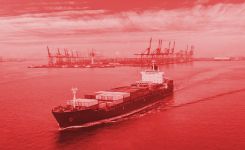- Daniel K. Inouye Asia-Pacific Center for Securi...
- The Role of History and Law in the South China ...
The Role of History and Law in the South China Sea and Arctic Ocean
“The Role of History and Law in the South China Sea and Arctic Ocean” is a new analysis written by Dr. Justin Nankivell, Associate Dean of Academics at the Daniel K. Inouye Asia-Pacific Center for Security Studies for the Maritime Awareness Project.
According to a release by the National Bureau of Asian Research:
“The law of the sea regime is in the early phases of a significant shift and subject to increased tension in its central normative structure. This has been the case many times historically, with each phase of the law moving in a path-dependent fashion through different international political environments. Though the law of the sea today has greater impact and causal effect on strategically driven state conduct than at any other point in history, evidence for this emerging change in the maritime legal regime is materializing in several key domains. Major states are now grappling with how to reason with, apply, and ultimately enforce the law of the sea as the great wheel of power winds forward in the Asia-Pacific. Concurrently, many states have different interpretive understandings of the authority of the law of the sea, which invariably lead to different strategic outcomes in foreign policy decision-making and maritime practice. For example, by virtue of different strategic cultures, U.S. foreign policy remains firmly grounded, guided, and even highly determined by the central principles of the law of the sea, while Chinese noncompliance with international law in the South China Sea is trending negatively and is indeterminate in key areas where China bears international legal obligations.
“Against this backdrop lie numerous states' particular "ideas of history": domestic narratives that continue to reconstitute the relationship of law and territorial entitlement to maritime domains. Nowhere are these narratives more deeply entrenched than in the Arctic Ocean, where both Canada and Russia believe that they "own" their Arctic waters in much the same way that China understands its "ownership" of the South China Sea....
Read the full analysis on the MAP website.
About the Maritime Awareness Project
NBR and the Sasakawa Peace Foundation USA have partnered on a major, important initiative to produce analyses and data on maritime disputes in Asia. The project brings together leading experts on the maritime domain and its legal, strategic, and economic dimensions to critically assess issues related to maritime security in the Asia-Pacific.



